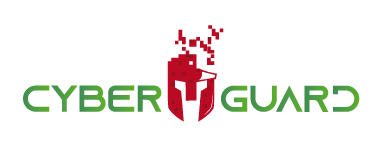
26 Apr Types of Cybercrime
What is Cybercrime?
Have you or someone you know ever been the victim of cybercrime? Unfortunately, along with the many amazing technological advances in recent years comes an increase in criminals and people willing to abuse it. The best way to protect yourself – or your business – from a cyber attack is to educate yourself. Knowing what cybercrime is, the types of cybercrime, and how to protect yourself from said attacks is the best way to protect yourself from a digital attack.
If you want to keep yourself and your loved ones safe from cyber threats, keep scrolling. In the below article we’ll give you a better understanding of what is cybercrime, types of cybercrime, and how to protect yourself from cybercrimes.
Cybercrime Meaning
Cybercrime is any criminal activity that targets either a computer network or networked device or uses a computer to target someone. A cybercriminal is commonly known as a “hacker”. A lot – but not all – crime committed by cybercriminals is organized by people looking to make money quickly. Cybercrime can be implemented by organizations or individuals.
With the growing prevalence of computers and computer literacy, cybercriminals come in many different “styles”. Some hackers are novices and have fairly easy-to-spot scams. Other cybercriminals can be extremely well organized, stealthy, and highly skilled in computer programming. Cybercriminals rarely aim to damage computers or people for reasons other than profit.
Types of Cybercrime
Although digital attacks are constantly evolving with our advancing technology, many hackers stick to well-known types of cybercrime. Most types of cybercrime fall into two main categories: criminal activity that uses computers to commit other crimes or criminal activity that targets. Below we’ve listed some specific examples of the cybercrime most people are likely to fall victim to:
- Identity fraud (someone steals your personal information and pretends to be you)
- Email and internet fraud
- Theft of credit card data
- Theft and sale of corporate data
- Ransomware attacks
- Cyberextortion (Threatening a cybercrime to get money)
- Cryptojacking (this is when hackers mine cryptocurrency using resources they don’t own)
- Cyberespionage (Hackers access government or highly-classified data)
Sometimes, hackers will commit crimes that fall under both categories of cybercrime at once. For example, a hacker may target a computer with a virus then use that compromised computer to spread malware throughout a network of computers.
How to Protect Yourself from Cyber Attacks
If you want to defend yourself from cybercriminals, the best thing to do is to closely guard your computer and personal data. Here are our top tips for protecting yourself from cybercrime:
- Use strong passwords – Do not record your passwords anywhere; or use a reputable password manager to generate strong passwords randomly and keep them safe.
- Keep software and operating systems up to date.
- Use anti-virus software and regularly update it.
- Do not click on a link in emails that seem strange or unfamiliar.
- Keep an eye on your bank statements.
If you’re worried about your digital security, sometimes it’s best to contact the professionals. Cyber Guard provides a variety of cyber services and is devoted to providing the most comprehensive cyber insurance policies in the market. Contact them today to discuss your needs and get a quote!
